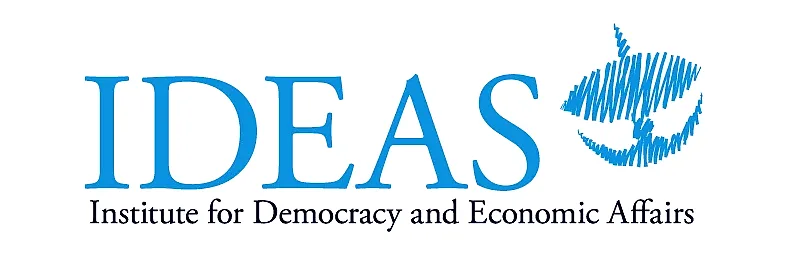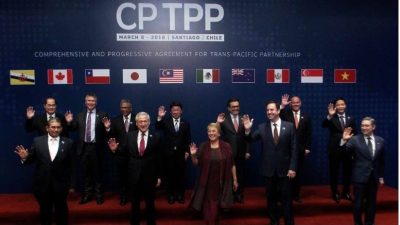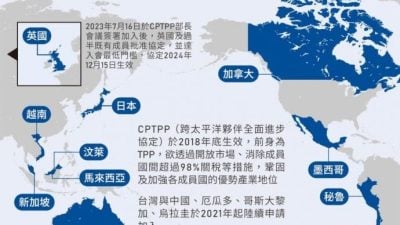
The Institute for Democracy and Economic Affairs (IDEAS) welcomes the release of the “Cost Benefit Analysis on the Potential Impacts of CPTPP on the Malaysian Economy and Key Economic Sectors” by the Ministry of International Trade and Industry (MITI).
IDEAS noted the key findings of the report, including that ratification would raise GDP by US$56.5 billion over the period of 2021 to 2030, as well as projections that Malaysia would enjoy a continued trade surplus at 8.5% of GDP in 2030.
Pointing out that MITI’s cost-benefit analysis (CBA) report bolsters IDEAS’ previous studies on the CPTPP and its projected benefits, IDEAS called for the prompt ratification of the agreement to help facilitate the country’s post-pandemic recovery.
The Comprehensive and Progressive Trans-Pacific Partnership (or CPTPP) is a mega-free trade deal involving 11 members from across the Pacific Rim.
In 2019, the member economies of the CPTPP collectively comprised 13% of world GDP and 15% of world trade.
However, unlike traditional free trade agreements (FTAs), the CPTPP goes beyond providing market access for goods, services and investments and aims to provide high-quality standards on issues such as state-owned enterprises, the environment and labor issues.
The CBA report concludes that ratifying the CPTPP will be a net positive for Malaysia, and projects that it would raise GDP by US$56.5 billion over the period of 2021 to 2030, thereby raising GDP growth by 1.9% relative to baseline figures in 2030.
With the possible entry of the UK and China into the CPTPP, cumulative GDP gains are projected to rise to US$125.4 billion over the baseline for the same period.
The report also showed that Malaysia’s trade balance is projected to be US$53.5 billion in 2030, and remain in surplus at 8.5% of GDP within the same year.
“The CBA report bolsters our own research into the CPTPP and its potential impact on Malaysia”, said Dr Tricia Yeoh, CEO of IDEAS.
“Our own research found that ratifying and implementing the CPTPP would ultimately boost Malaysia’s GDP by an additional 1.0%, as well as create new employment opportunities equivalent to 140,000 additional people in work.
“The possible inclusion of other member economies such as the UK, China, and Taiwan will provide even more market access for Malaysian businesses.”
IDEAS also pointed to two National Interest Studies on Malaysia joining the TPPA published in 2015, each of a quantitative and qualitative nature.
On the quantitative side it was found that Malaysia’s participation in the TPPA is projected to achieve a cumulative gain in GDP of US$107 to 211 billion over 2018-2027, assuming all tariffs are eliminated and non-tariff measures (NTMs) are reduced by 25 to 50% across the 12 prospective TPPA member countries.
More than 90% of the cumulative GDP gains are attributable to the reduction in NTMs. An elimination of tariffs without any reduction in NTMs would reap a cumulative gain of only US$12 billion over 2018-2027.
Additionally on the qualitative side, it was emphasized that by looking at the economic, social and security pillars, on balance, it was in the interest of Malaysia to join the original TPPA.
“The latest CBA publication launched in 2022 reinforces the welfare gains that Malaysia is poised to benefit in the medium to long term as part of the CPTPP pact,” stated Dr Juita Mohamad, the Director of Research and Director of the Economics and Business Unit at IDEAS.
“However, the cost of Malaysia not ratifying the agreement is quite significant as welfare gains are expected to be lower due to effects of trade diversion and limited market access to other new trading partners.
“Ratification of the CPTPP will no doubt bring short-term adjustment costs, but we believe these challenges can be addressed by the government within the available policy space, while looking at examples of how other CPTPP partners have successfully transitioned.”
(IDEAS is a nonprofit research institute dedicated to promoting solutions to public policy challenges, focusing on three overarching missions – advancing a competitive economy, ensuring trust in institutions and promoting an inclusive Malaysia.)
ADVERTISEMENT
ADVERTISEMENT







































